|
11/7/2024 0 Comments SWIFT EVENTS Newsletter | Issue 17 This final EVENTS issue for the academic year 2024 - 2024 includes a featured article, as well as highlighted programmes, courses and events from our partners to support your professional development and enhance the work of your school. Featured in this issue we have: SWIFT Membership 2024 - 2025 | Registration now open We are delighted to open registration to Schools, Federations, Trusts and other bodies to join SWIFT Membership for 2024 - 2025. Find out more in our Membership Brochure HERE and the link for registration is HERE. Highlighted Programmes:
0 Comments
3/7/2024 0 Comments Excellent Teachers Creating Excellent Memories | Reflections on the Characteristics of Great Teachers with ONVU Learning Why did you become a teacher? Which teachers do you remember? Our sponsor, ONVU Learning thinks deeply about the dynamics of teaching and learning and reflects here on excellent teachers to inspire the next generation of teachers. We all remember that one teacher who was more than an educator. A Mentor, a guide, and a catalyst for personal and intellectual growth. Their passion for their subject matter was infectious, igniting a similar enthusiasm in you. They possessed an uncanny ability to recognise and nurture your individual strengths, encouraging you to pursue your dreams with confidence. Their lessons may have extended beyond textbooks, imparting valuable life skills and wisdom that resonated long after the school bell rang. Through their unwavering support and belief, they instilled a sense of purpose and self-worth, with memories of their kindness, patience and innovative teaching methods remaining a source of inspiration. Perhaps it was that inspiration that led you to teaching. Creating Lasting Impressions Excellent teachers have the unique ability to create lasting, positive memories for their students, shaping their lives in profound ways. As educators, they transcend the traditional role of a subject teacher. Through dedication and enthusiasm, their classrooms are transformed into spaces of inspiration and discovery. They foster a love for learning, ignite passions, and build confidence, leaving an indelible mark on their students. For some, the absence of such teachers in their own education becomes a powerful motivator to be the teacher they never had. These reflections underline a critical truth: inspirational teachers are not only transmitters of knowledge but are pivotal in nurturing well-rounded, motivated individuals who carry their influence long into adulthood. Empowering Teachers for Excellence: Strategies to Create a Supportive, Judgment-Free Environment Empowering teachers to excel requires a clear vision and a nurturing environment that supports their growth without judgment. Schools must foster a culture where teachers feel valued, heard, and encouraged to innovate; which means creating collaborative spaces for sharing best practice, challenges, and successes. By involving teachers in decision-making processes and policy development, schools can cultivate a sense of ownership and commitment. Recognising and celebrating teachers' achievements can significantly boost morale and motivation. Ensuring teachers have access to necessary resources and a supportive administration creates a foundation where they can focus on what they do best: teaching and inspiring students. Tailored Teacher Professional Development: Introducing Practical, Customizable Tools Effective teacher development must be bespoke, in recognising the varying stages of a teacher's career and their unique classroom dynamics. Initial Teacher Training (ITT) and the Early Career Framework (ECF) establish foundational practices and habits. However, further professional development needs to be adaptive, helping experienced teachers maintain good practices whilst responding to new challenges, such as changing student demographics. Practical examples include coaching approaches to fine-tune teaching practices, growing teacher agency to encourage confident, well-chosen risks, and making it standard practice to discuss teaching methods alongside insights from authentic lesson observation feedback. This approach ensures that professional development is not a formality, but a meaningful, growth-oriented process that aligns with the evolving educational landscape. Sustainable Strategies for Teacher and Student Success: Actionable Steps for Schools To sustain and enhance teacher development, schools must implement strategies that ensure continuous growth and competitive advantage. 1. Keep whole school training days focused on vision and policy, rather than granular, practical implementation, allowing for a clear, unified direction. 2. Middle leaders should be equipped to evaluate the impact of actions, moving beyond mere box-ticking to genuine, impactful assessments. 3. Teachers should be provided with the tools to play, practise and perform, and the confidence to know that they will be supported and judged fairly - including fostering an ingrained understanding of their cohort's needs, interests, curriculum demands, and expected outcomes. By embedding these sustainable strategies, schools can create an environment where both teachers and students thrive, ensuring long-term success and a lasting positive impact on the educational community. How is ONVU Learning Supporting Teachers and Schools to Create Lasting Impressions ONVU Learning’s complete 360-degree lesson capture solution helps educators to reflect, collaborate and analyse the entire teaching and learning process. By using 360-degree cameras, your teachers can capture the entire classroom allowing them to review and share clips of best practice from our web-based platform, to improve teaching techniques and empowering teacher autonomy. Schools across the country have been implementing ONVU Learning to enhance their Early Career Framework programmes, to enhance and scale effective Teacher Continuous Professional Development programmes, and ultimately, to improve teaching standards and learning outcomes. Learning is a complex process in which teachers are pivotal. If teachers are to be effective contributors to children’s change in behaviours, attitudes, knowledge and skills then they need a tool that helps them see teaching and learning inside their classroom with clarity and without judgement. By putting the teacher in the driving seat, ONVU Learning allows you to customise your professional development by choosing which lessons to record, choosing what to share and what to keep private, tag and comment on key moments during your lesson and collaborate with colleagues without taking up valuable resource time. To Find Out More
Join ONVU Learning at a FREE webinar on Excellent Teachers Create Excellent Memories on Thursday 11 July 2024 from 0830 – 0900. Hosted by ONVU Learning’s Matt Tiplin and Stella James, you will explore transformative strategies that empower teachers to excel in order to enhance student achievements. You will also look at personalised development plans that combine the best practices of memorable teaching with innovative growth opportunities tailored for teachers. 2/7/2024 0 Comments 2024 Devon Art Teachers Conference | plus a FREE creative opportunity for Torbay SchoolsLed by the inspirational Art Subject Specialist, Sam Eyre, from Coombeshead Academy, and supported by Joe Long, Art Lead at The Spires College, Primary and Secondary Art Teachers attended the 2024 Devon Art Teachers’ Conference last month with an informative and inspiring agenda. Attendees benefitted from updates and feedback on the AQA assessment objectives from Aly Diggle-Perry and Sandra Allan from AQA Examination Board, who provided a valuable opportunity for attendees to see an exhibition of exemplar work from students to support assessment. There were lots of resources and links to tap into about grants, funding and projects by freelance artist Claire Harmer; a former teacher, who uses South Devon as the inspiration for her work and works directly with schools (find more information here). Teachers were challenged to delve into the world of AI, as Sam presented opportunities and challenges of implementing artificial intelligence in the art classroom, such as how to use AI to create digital pictures. Enriching information that may help to keep us one step ahead of our learners! One of the most valuable parts of the day centred on networking with colleagues and sharing from experiences, with teachers having an opportunity to share their challenges and find solutions to improve their practice for their pupils. There was also time to explore the vast array of arts and crafts at Bovey Tracey’s annual Craft Festival and to meet many crafts people and observe workshops, demonstrations and talks, taking away ideas to use back in their own settings.  A must for all training days is the refreshments, and Rodney’s café, based at MAKE Southwest, provided delicious lunch and cakes. Feedback from the day was enthusiastic praising: "The range of presentations and passion from each presenter.’ "The opportunity to network with fellow Art Teachers, connect with potential future projects/funding and links with teachers for future CPD links.’ "To hear about relevant issues for Art and Design." "The contacts and varied resources and speakers." Planning is already underway for next year’s conference and looking forward to sharing with primary and secondary Art Teachers across South West schools. With thanks to Sam and Joe for their leadership. Report by Tania Cox, Partner Director, West Country Training School Alliance MAKE Southwest Hosted by Educational Manager Ian Wilkins at MAKE Southwest in Bovey Tracey, this craft education charity is funded by Arts Council England with a thriving membership of over 300 crafts people, with an engaging exhibitions programme and retail gallery, championing the highest standards of craftsmanship since its formation in 1955 and has become a leading advocate for crafts education. A FREE Creative Opportunity for Torbay Schools Craft Council Material World Project - a funded opportunity for school teachers Outreach Programme Craft School is open to all schools nationwide, but other geographical areas have been identified where they would like to increase participation in Blackburn, Kirklees and Torbay with a wish to boost participation from schools with higher levels of Pupil Premium funding. The Craft School Outreach programme will offer additional training to prepare and support teachers through the delivery of Craft School working with 12 teachers from six schools in each region over two academic years. The programme is offered to schools free of charge and will aim to:
Two members of staff from each school, notably Teachers, Teaching Assistants, Technicians or other support staff are all welcome to participate and will be able to attend professional development sessions, which will include an element of practical making.  Torbay Project Timeline Thursday 11 July 2024 from 1630 – 1830 | First face-to-face professional development session. September 2024 | Second Torbay professional development session. September 2024 | Enrol in Craft School: Material World. October 2024 | Third Torbay professional development session. September / October 2024 | Start to deliver Craft School: Material World with learners. To make use of Craft School Teacher toolkit, professional development sessions and other resources. December 2024 | First Torbay online support session. February 2025 | Second Torbay online support session. April 2025 | Submit evidence of learners’ work and making journeys to Craft School: Material World (online portal). May 2025 | Judges select work for awards (one per Key Stage). June 2025 | Online celebration event for all participants. Commitment from Schools Participating schools will be asked to commit to the following:
For More Information
Contact Hassina Khan or Ian Wilkins.  “If everyone is moving forward together, then success takes care of itself.” (Henry Ford) This time last week, it was lift-off for the SWIFT 2024 Summer Conference at the new venue of the Future Skills Centre in Exeter. Hosted by Executive Director, Martin Director and Jen Knowles, Director of Teaching School Hubs, delegates fastened their seatbelts for what was to be a supersonic day. Education South West (ESW) CEO, Matthew Shanks’ welcome set the tone for the conference in considering the current challenges and key themes for schools and leaders - with a call to action for collaboration across schools in the South West. “Our job is to help every single child.” Matthew reflected how alas, the system is not currently built for collaboration due to disincentivizing league tables and a lack of support and funding for children’s services. However, with ESW the lead Trust for the Kingsbridge Teaching School Hub, Matthew echoed the SWIFT ethos of selfless collaboration that helps to make a better society and fulfils our vision of creating high-quality opportunities for staff to learn, develop and connect. So that all children, especially the disadvantaged, achieve the best educational outcomes. After the fantastic first three years as Teaching School Hubs, the statistics are splendid to behold. 3,295 teachers and leaders have engaged in over 80,000 hours of training with SWIFT that importantly, practicably, and hearteningly has a direct impact on the quality of education and lives of young people in South West schools. And the good news is that SWIFT is committed to building on this successful support.  On that stirring note, the first keynote speaker took to the stage. Presenting on “Why nice isn’t working: why relational currency supports positive behaviour,” teacher, behaviour specialist, author, education reformer and advisor, Paul Dix began by sharing his own experience as a 24-year-old teacher. Re-living the case of the humbling home visit to his pupil, Robert; Paul recounted the discovery of his positive notes that Robert had previously crumpled up (and Paul assumed to have been thrown away) and yet were pinned-up on Robert’s bedroom wall, in an otherwise nearly empty home. Heart-rendering. In a talk that was entertaining and energising with visual props, Paul highlighted the importance of relationships being predictable, systematic, consistent and habitual. Think of the primary children who slipped happily into the habit of shaking the hand of their teacher every morning on arrival into class and who were disappointed when she suddenly stopped this hands-on habit. Such was this happy habit, even parents came into school to shake the teacher’s hand as well. Relational practice begins with the easy actions. The positive noticing, in a pure and nuanced way and it is this emotional currency that leads to trusting relationships. “There’s no teacher in the world who doesn’t know the power of positive noticing.” In an endearing peer-to-peer relationship-building story, Paul shared the example of the school who gave all their Year 8 pupils a brown postal label. With echoes of much-loved national treasure, Paddington Bear, the pupils were all invited to write something nice about each other on the label, which they then swapped and tied onto their bag or tie. Instead of teen uneasiness, these positive peer labels stayed visibly tied on for a long time. Get your labels ready, and make a date in your diary on Wednesday 13 November 2024 for Positive Noticing Day to celebrate in your schools and organisations. By looking at the behaviour of adults first, this starts the change. It can be hard work to do the right thing and some people might prefer the easier route. But as Paul reminded us, it is the children who suffer when adults take the easy route and ultimately, scripted intervention does not work. Clear away the bindweed! Remember the leadership gauge of what you are doing, the why and the priorities. Paul invited delegates to consider three behaviours that work with children and the suggestions were uplifting. Smiling, clarity, resetting, listening, curiosity, emotional acceleration. Hands kept popping up. Be ready, respectful and safe and know that consistency is worth fighting for and understand how you define this consistency. Knowing adults will listen and knowing there will be a positive response is essential. In terms of implementing relational practice and bringing the whole school together, Paul compared the tortoise and the hare leaders. The hare leaders could lead a two-minutes pupil spotlight in staff meetings where colleagues with the best knowledge present a 360 view on individual pupils to provide and show how the child learns best and gather strategies from other members of staff. A bank of small spotlights builds up, and is a practical way before going into the classroom to equip all teachers with strategies, even if they do not teach a specific child, it helps to build relational practice across the school. Another top tip was the use of termly Threads that state three rules to start a whole school conversation to encourage commitment from both staff and students, that builds each half term on the previous Thread. In a memorable film clip, Paul showed the young football team standing stoically in the rain and how one-by-one in an image of wraparound love and care, each teacher put their own jacket around the child in front of them to protect them from the rain. Back to the hare and the tortoise, the slower of the duo builds their knowledge before making changes, with high-quality flexible training and then drip feeds strategies each half term. In other words, there is a place for both the hare and tortoise.  SWIFT works with select sponsors who provide a range of educational services to help boost our high-quality professional development offer to schools. As the first of the two conference sponsors, Vice President, Matt Tiplin introduced ONVU Learning: deep thinkers of teaching and learning translated into classroom technology. Teachers are empowered to review their own practice to provide a better methodology by outcome and with his own story as a past teacher, Matt invited the audience to remember a good teacher from their own life. Find out more about ONVU Learning at the FREE Excellent Teachers Create Excellent Memories webinar on Thursday 11 July 2024 from 0830 – 0900.  Delegates could then choose one of two morning breakout sessions. Associate Professor at the University of Warwick, Institute for Employment Research (IER) and Founding Director of CareerChat (UK) Ltd, Deirdre Hughes OBE led the session on “Leading with Vision: transforming education for tomorrow’s workforce.” Leadership, is an opportunity to make a difference as transformational leadership. Even if there is no single way to transform the educational system, it is a line of sight to work. Otherwise, divisions can widen. Deirdre encouraged leaders to find the value in understanding the relevance of education in our fast-changing world of work with spiralling issues, such as multiculturalism and wellbeing. Find personal development for decisions and pathways and changing attitudes to the workforce for life-long learning and ways to inspire amidst the uncertainty and change. Learn collaboratively with a commitment to projects and how to develop skills for the future. Consider changes to relaxing the curriculum to foster flexibility and see the relevance of learning. With her background expertise in career guidance, Deirdre noted the value of rooting career development into the curriculum and bringing employers into the classroom. Education is no longer only about didactic teaching; but rather about learning through collaborative, experimental, and community-based projects that address issues about which students care deeply. There is a need for places and spaces where parents see the relevance and want to help the children in their care and to personalise the learning experience with digital tech. But what can AI do for us to help us to do together? “The need for education is to prioritise what it means to be human.” Find out about CareerChat (uk) at the FREE Intelligence Revolution and How We Can Help Young People Prepare for a Transformed World of Work webinar on Thursday 4 July 2024 from 1400 – 1530.  Former Chair of Children and Young People’s Mental Health Coalition, and author of “The Mentally Healthy Schools Workbook,” Dr Pooky Knightsmith led the other breakout session on “A Whole School Approach to Mental Health.” Pooky outlined the following six areas of focus in schools with lots of helpful tips and invited the audience to consider where they fit on a scale of 1-10: 1. Staff are Happy and Healthy If schools do not get it right for staff, it is challenging to get it right for children and community. Leaders are role models and look after themselves first as children learn from what they see adults seeing and doing and sustainable change must have staff at its heart. Happy staff feel heard: their opinions matter, whatever their background and diversity. Happy staff are mentally and physically healthy. Think about small changes to ensure staff get fresh air, access to healthy food, have time to eat. Think how you acknowledge teachers' workload. Mastery is every member of staff turning up to do their job and do it well, which in turns supports their wellbeing. Passion will make the difference in our job and help to connect with colleagues. Look beyond Ofsted and ticking boxes. 2. Our Setting Feels Safe and Welcoming The biggest difference to support a child is a calm adult. Meet children with a smile. Walk through your school in the shoes of a stranger and be honest about all the things you see/feel/hear/smell. Children need to know their school is safe place. Make your school a calm environment that meets the needs of neuro-divergent children. Be predictable. Meet the needs of all children and look out for the quiet students too. Be brave to share when things do not go quite right. Be an authentic and brave leader. 3. Every Learner Feels Heard Think how you hear the quiet voices and the angry voices. Think about inclusion and diversity and any groups who are missed out. Think how you listen and how to help those children who are reluctant to put their hands up. 4. We Recognise and Support Our Most Vulnerable Learners Work with the child, not for them. Hear their ideas and think how you can support them. Quality first teaching. Think how you get your classroom to be engaging, exciting and accessible for all learners and what universal approaches can be in place. All staff ‘keep a child in mind’ on rotation and ensure each child has at least one trusted adult. Let them choose and be led by them. 5. Families Positively Engage Parenting is hard. Have high expectations of parents and if they do not live up to them, question what we are doing that is letting them down. Make sure you use their time well. Be approachable: see parents as people and humans. Use their names, ask connecting questions, share good news with homes not used to hearing it. Think what you can do tomorrow to make a difference. 6. Help is Sought When Needed Show children there are no barriers. Celebrate and role model help -seeking and problem solving.  Educational journalist, former teacher, and co-founder of Teacher Tapp, Laura McInerney presented the next keynote on “Education Trends.” It was Laura’s form tutor and Teacher of French, Miss Watson who inspired her to become a teacher; noting that the best teacher gets you an A*, even when you do not necessarily like the subject. It was Miss Watson who brought a newspaper article into school on Laura’s favourite author, Terry Pratchett and her positive noticing made Laura want to be a Miss Watson - and she has followed her example ever since in always wearing a jacket. Ten years ago, Laura’s yellow jacket (plus yellow six-inch heels) had a special outing when she was taken to court by Michael Gove and Dominic Cummings for being "vexatious" about a Freedom of Information Act request on the hot topic of free schools. (A longer and highly entertaining court case story cut short, it ended well for Laura). Teacher Tapp came about from Laura’s editorials in Schools Week based on discussions on a minority of teachers and schools. In 2017, Laura combined forces with Professor Becky Allen who wanted to survey teachers to gather data and the dynamic duo created the highly popular and successful Teacher Tapp. Signed-up teachers are sent daily questions that gather data and help to stop misinformation and spot trends. One of the most controversial questions, would you believe, is whether the school provides free tea, coffee and milk. Turning to another popular conversation topic for us all, the weather, Laura related her own experiences of living in Michigan, part of Tornado Alley. Unlike the UK, where the weather stops play, and people get angry, in the USA, everyone stays at home and does not get angry. The same could be said of reactions to education policy. When the weather turns stormy, we need to change the response, and seek shelter until it has passed. There is no point shouting! With her evident instincts for spotting trends, Laura considered some of the big challenges in education with simple causes. Consider recruitment and retention as a familiar educational trend. Teaching is not any less good, but there are basic challenges. Fewer 22-year-olds are joining the profession, and are not offsetting those exiting the workforce. Hence lots of squeezing on teacher numbers. Consider the high number of 12 – 13-year-olds coming through to secondary, and increasing pressures on schools with increasing behaviour issues and levels of complexity. Whereas at primary, pupil numbers are falling over the next 10 years. The recruitment of Teaching Assistants, Receptionists and other administrative staff needs a re-think due to societal progress. To date, these low-paying roles have been taken by women who needed term-time work. But as the employment market is changing, this trend is also changing as there is more career choice. Vexatious complaints about schools are rising because there are more children, medical advances, Education, Health and Care Plans (EHCPs) have been de-stigmatised and Local Authorities have been given responsibility for 19 – 25-year-olds. There has been the shift in parental expectations from this educated parent group with a louder outcry. Schools cannot change this, but need to have the response and robust communications and complaints processes in place. Looking to the future, Laura looked to the past and reflected on former Education Secretary, George Tomlinson in post after World War II from 1948 and 1951. Facing bombed schools, a high baby boom in 1946 and no university graduates in his inbox, he made the decision to raise the school leaving age. It was considered outrageous. Not least from an Education Secretary who had not attended secondary school. However, it was a timely reminder to us all with the shared purpose to provide an education for all children and young people. The metaphorical tornadoes are coming, and it is for schools to try and work out the response. After that insightful weather warning, SWIFT Delivery Partner at Tarka Trust, Andy Ogden introduced the benefits of SWIFT Membership and highlighted the value of professional development as an investment in staff and the school. Further to the questionnaire to schools at the end of last year, in the next school year, new programmes on offer will be directly related to feedback from colleagues. New Professional Communities will be an opportunity for teachers to access a network in their phase/subject to support their development. Paul Dix and Tara Ellie will also be leading a session on “When the Adults Change – Behaviours Change.”  Looking to support teacher recruitment within the South West, this year, SWIFT has been working with Exeter Consortium/South West Teacher Training, Plymouth Marjon University, SWIFT Teacher Training and the University of Exeter on an Initial Teacher Training (ITT) Area Strategy. The initiative requires all Teaching School Hubs (TSHs) to deliver new strategic roles to support local ITT delivery across their area as an important regional role working with schools and accredited ITT providers to understand the local market, context and challenges. TSHs can also offer information and support to schools who wish to engage in ITT for the first time or to increase their engagement in ITT. Led by the ITT Strategy Team, Andy Ogden, Fiona Bosley and Matthew Wharf who are working together to develop a collaborative ITT Strategy to support the next generation of teachers. This year SWIFT has been evolving our Diversity, Equity and Inclusion (DEI) endeavours so that it is intentional and integral to all that we do. Further to an advert to schools and partners earlier in the year appealing for volunteers from all backgrounds who wished to connect their experience and enthusiasm for DEI, the Diversity, Equity and Inclusion Partnership Group was born. Krisha Gandhi, Caroline Leigh and Tom Pether attended from the Group and shared how their work is shaping up.  The trio shared their own stories as a person of colour, a working mother and a white middle class male and encouraged the audience to think about their own school cultures and any unconscious bias. Through their Theory of Change the Group intend to share best practice and research, provide relevant and inclusive training and proactively listen to diverse viewpoints across our region to foster a sense of belonging that will be felt by our communities and there will be supportive connections, sustainable choices and opportunities for all. If you would like to find out more and/or get involved, the Diversity, Equity and Inclusion Partnership Group would like to hear from you. Our very own Roger Dimbleby (Pope) led Question Time with questions including what priorities would panellists propose for the new Education Secretary on Friday 5 July 2024; what would creativity in the curriculum look like, and whether there is a future for written exams (expanded to writing in schools). The final question: What gives you optimism for the future of education, certainly maintained the momentum of the conference with panellists celebrating schools and Trusts coming together to work through challenges, schools as relational places, overcommunicating the positives messages, sharing joy, talking to families and believing in staff who care. Continuing the caring theme, second conference sponsor, Goosemoor Educatering, Head of Educatering, Rob Stevens whet our appetites for the lunch feast that was the follow with an introduction to their bespoke food service for schools. Rob told how he was leading an onboarding session at a school and a child asked her mother if the food tasting was free. Speaking from the heart, Rob shared his pride in how good food makes a difference to all families and knowing children are going home “with full bellies.” Not dissimilarly, conference delegates were to go home having eaten a delicious lunch and we are grateful to Goosemoor Educatering for a feast.  The first of the afternoon breakout sessions was led by Chief Executive, Paul James and Director of Inclusion, Katherine Walsh at the River Learning Trust on “Leading Inclusion: What works?” The River Learning Trust spans big secondary schools to small primary schools in a high pupil premium area with complex learning and disability needs. The Trust have aligned autonomy, but are not “a cookie cutter Trust” as that would not be a good fit for the diversity of their schools. Paul's first top tip would be the immediate appointment of a Director of Inclusion as the impact for their Trust over three years has been immense, and working on six key areas.  An increasing number of children have special needs. 52% who have EHCPs are in mainstream education, and year-on-year there is a 1% increase of children with SEND in mainstream schools. This brings inevitable challenges. It is important firstly, to boost staff confidence and to support teachers to develop this confidence and secondly, to distribute leadership as the SENDCO cannot be the font of all knowledge. Rather than the SENCO leading all parent meetings, the Form Tutors can also lead and who has a holistic overview of the child and consider how Teaching Assistants are deployed. The Trust have an Inclusion Strategy that is built on knowing schools well and understanding the school context. The Education Endowment Foundation makes the following five key recommendations to meet the needs of children with SEND: 1. Create a positive and supportive environment for all pupils without exception. 2. Build an ongoing, holistic understanding of your pupils and their needs. 3. Ensure all pupils have access to high quality teaching. 4. Complement high quality teaching with carefully selected small-group and one-to-one interventions. 5. Work effectively with Teaching Assistants. There is no magic SENDCO tree. We have to make it a motivating, engaging and wonderful job as a role that can make a huge difference. SENDCOS can move into Headship as SEND runs through all we do.
Be prepared to do things differently. Walk into lessons and think ‘which child is this lesson not working for.’  The second afternoon breakout session was led by CEO of The Woodland Academy Trust, Nav Sanghara on “The Art of Compassionate Leadership.” “It is important to be a kind leader. But it is also important to focus on execution and do hard things. This is about how to do hard things in a human way.” (Raasmus Houggard) In a talk that was infused with wise and wonderful mantras, Nav considered what compassionate leadership looks like. Leaders need to be kind to themselves in the first instance so that they bring energy into their leadership. There is value in knowing and overcommunicating your purpose and redefining and re-evaluating this purpose. With a calm tried and tested wisdom, Nav encouraged leaders to have a core principle and to live by your values that drives actions and decision-making and connects with your organisation. Model these values to children and staff. “Who we are is who we lead.” Psychologically safe teams have real and open conversations. Build one culture and trust together with equity and collaboration and understand the shared vision as a promise to staff and children. It is not always possible to be excited and energised, but good habits can help to live life better. Challenge is to be celebrated and accepted and establish good structures and systems to provide time to pause and respond. As a clarion call for the conference, Nav highlighted how true belonging is where space is created to come as you are and celebrating others to do the same and to see the good in others in your community. To demonstrate a living example of compassionate leadership, Nav shared a video from the School Under the Bridge in Delhi founded by Rajesh Kumar for children from poor families who cannot afford to send them to school. Seeing is believing.  The final keynote speaker was to end the conference on a moving high. For nine years Chris Lubbe was Nelson Mandela’s bodyguard after a chance meeting and a five-minute interview, followed by a gruelling six months training with the SAS. Speaking on “My Journey from Apartheid to Truth and Reconciliation,” the audience listened intently as Chris shared his first-hand story of working closely with the revered Nelson Mandela. It was a way for us to feel close to the brave leader who devoted his life to bring apartheid to an end in 1994. Chris spoke with a heart-stopping serenity bringing to life the Nelson who did not believe in black and white; who showed no anger for his imprisonment and maltreatment; but with an enduring charisma and belief in forgiveness as the key to freedom, he reached out to bring everyone together. As his boss and mentor, Chris recounted how Nelson once told him to write down all the angry things in his heart and then told him to put the pieces of paper onto the fire to burn. Describing his own upbringing in a shanty town, finding thrown-away books to read in the local dump, the two-tier education system and segregated beaches with demeaning signage to match. The stories flowed with a serenity that comes from an inner peace perhaps, and the courageous re-telling. Yet the horrors of the police still sent shivers down our spines. Eight-year-old Chris witnessed the shocking treatment of his diabetic mother taken ill on the bus and pushed off a WHITES ONLY bench by the police that led to three months in hospital in a coma and a long recovery. As a child, Chris bought a map of the world and once a month he wrote to world leaders to ask for their help – including our very own late Queen. Chris was angry, but wanted to do something to inspire peaceful change. As a young man, alongside anti-apartheid and human rights activist, Archbishop Desmond Tutu, Chris stood tall as a peaceful protester, even when it led to arrests and imprisonment and torture. Terrible times. Fast forward to working for Nelson, there were however, moments of glamour. Chris met many celebrities during his time with Nelson – including the Spice Girls who were most miffed when Chris pretended not to know who they were (on the advice of his boss!). But it was at a dinner with the Queen that reminded me of many of the values shared at the conference of hope, compassion and collaboration. A silver platter was presented to Chris. Inside, the envelope was another envelope and inside that envelope was Chris's letter to the Queen that he had written as a boy. A faithful letter writer, the Queen had replied to him, as well as writing regularly to other world leaders for their support. The South African authorities had obviously intercepted her reply to Chris that he never received until that grateful moment all those years later. To a standing ovation, Chris ended the 2024 Summer Conference on a note of hope, forgiveness and togetherness. Nelson Mandela used to say that words are important. But with his humour and humility, like toothpaste, he said, you cannot put them back into the tube. So, choose your words carefully. “We must never remain silent.” Yet words fail me to convey how uplifting it was to be present in that moment.  To echo the warmth that enthused our SWIFT 2024 Summer Conference, we thank all our speakers for their thoughtful presentations and for bringing a meaningful momentum. We also thank our delegates for making time and for sharing in the event with us. A grateful thank you to our sponsors and exhibitors: BCR Associates, CiCI Empowering Careers, Goosemoor Educatering, InVentry, Nasen, ONVU Learning and PHP Law for attending the day and spending time speaking to our delegates about their products and services that add value to schools and thank you to Conferences Southwest for their organisation. Finally, we thank Mark Drew and Robin Scott from our partner, Exeter Consortium Schools' Alliance, for their excellent conference administration and making it all work so well. Report by Jude Owens, SWIFT Executive Assistant
It is the penultimate UPDATE newsletter for this academic year 2023 - 2024 and we hope that there will be something of interest for you in this June issue.
Associate & Strategic Leader of Teaching & Research Schools (ESW) Roger Pope CBE gets into TikTok and the #WorkTok trend that leads to thoughts on today's workforce with reference to Professor Thomas Roulet at the Cambridge Judge Business School: "He argues that what has changed is not a willingness to work hard, but rather what we now ask from work. Our work has become a more significant part of our lives. The demands on younger generations are greater than those on older generations. They are asked to give more - and so they ask for more in return." As we will soon have completed our first three years as Teaching School Hubs, we tot up the numbers of colleagues who have engaged in over 80,000 hours of training with SWIFT and muse on the direct impact on the quality of education and lives of young people in South West schools. We also share some of the benefits from our recent wellbeing in the workplace training with ACAS. Our interviewees this time are Krisha Gandhi of Cranbrook Education Campus and Tom Pether of East Allington Primary School and also valued co-Chairs of the SWIFT Diversity, Equity and Inclusion Partnership Group. Kingsbridge Research School enlighten us with The Education Endowment Foundation’s new and updated Guide to Effective Implementation and highlight the changes. Understanding that Health and Safety is a fact of a life and practical awareness is essential for schools, our sponsor SchoolPro TLC has recently added SchoolPro Safety to its arsenal of services to schools and you can find out more about their services. Other sponsor news. ONVU Learning considers whether cameras in the classroom means Big Brother is watching you (spoiler alert - no! It is much more exciting in the 21st Century). Remember, you can meet ONVU Learning in a FREE Excellent Teachers Create Excellent Memories Webinar on Thursday 11 July 2024 from 0830 – 0900 and also at our Summer Conference on Thursday 13 June 2024. Educatering have been busy showcasing their food and bespoke menu service at conferences across the South West and bring more enticing foodie delights that are enjoyed by many children, young people and staff in school across the South West - and beyond. You will also meet them at the Summer Conference and feast on their food. Exeter Supply Partnership provides some super-helpful-positive guidance on how to be a Supply Friendly School. It makes sense. See how many your school can tick off. As always, we wish you a rewarding final half term and thank you for working with us. With the Summer Term well underway and a Bank Holiday afoot, we are pleased to bring you this May issue of UPDATE.
Associate & Strategic Leader of Teaching & Research Schools (ESW) Roger Pope CBE opens with thoughts on the different contexts for teachers, doctors and surgeons: "Think of the complexity of a school, where in a class, 30 people are all interacting with one another, or a school where hundreds are interacting. Factor in the added complexity of the family and friendships context. The fact that every child learns slightly – or even hugely – differently, brings an infinitely varied range of previous learning and experience to any given moment in a lesson, an infinite range of emotional responses and is growing and changing by the day…hour…minute. Add in the complementary complexity of the teacher" Read some of the highlights from the The MaternityTeacher PaternityTeacher Project and WomenEd The Mother of All Pay Gaps Conference and the Summer Term Estates Management Professional Community. Newly appointed Regional Lead for the South West for Whole School SEND, Emma Vyvyan Find shares some of her good intentions in our interview and their professional development offer to support you and your children and young people. Helen Thorneycroft from the Kingsbridge Research School guides on teachers emphasising the ‘Why’ while modelling: “Teacher discussions that allow students to elaborate on their ideas or their methods, to reason out their thinking and question their strategies, have been associated with progress measured in the form of improved test scores.” Sensitive to staff data sharing in mental health emergencies, data experts SchoolPro TLC outline essential guidance based on recent updates from the Information Commissioner’s Office (ICO) and provides some key takeaways for you. Our other sponsors provide details of their services. Educatering awakens appetites with new menus this Summer Term and photos to prove it and also prove their local credentials with supplier appreciation for their valued partnership with Dartmoor Farmers, who have been farming the land for thousands of years and who provide beef and lamb for school lunches. ONVU Learning considers the merits of teacher-led continuing professional development and championing autonomy in professional development and challenges traditional professional development models. You can meet ONVU Learning in a FREE Excellent Teachers Create Excellent Memories Webinar on Thursday 11 July 2024 from 0830 – 0900 and at our Summer Conference on Thursday 13 June 2024. And Exeter Supply Partnership Teacher provides top tips for getting into primary supply teaching with their professional support and care. "There are many supply teaching agencies out there, so you need to find the one that suits you and your needs best." We wish you a fulfilling remainder of this term and a lovely Bank Holiday weekend. World Water Day | Friday 22 March 2024 | Vanishing Sea The theme of this year's World Water Day is ‘Water for Peace’, and focuses on the critical role water plays in the stability and prosperity of the world. On Wednesday 20 and Thursday 21 March 2024, our sponsor, Lyfta is offering FREE live lessons to bring the world into your classroom (see details below). Travel (virtually) to Jordan and spend time with farmer, Hassan as he battles the decline of the Dead Sea with the looming threat of sinkholes all around his farmlands. You will also be able to take a wider look at the issues of water security in a region affected by historical and ongoing conflict and learn why the River Jordan is special to half of humanity. Booking
Complete the booking form below to select one of the following time slots:
If you have yet to sign-up for a Lyfta subscription, you can set up a starter account on the link below, which will allow you to access supporting resources ready for the live lesson. I am pleased to be presenting at the “Once Upon a Time” festival on Saturday 15 June 2024 at Bristol Beacon, which builds on our partnership work with organiser, Helen Prince. Helen is the author of the most recent Oxford Language Report (2021 – 2022) that looks at the scale of the word gap and the impact of Covid on language developments as an ongoing issue. After sifting through hundreds of school submissions regarding their focus on oracy to boost progress, standing out in their innovative and exemplary practice, Helen and the team included Tor Bridge Primary School as one of nine schools in the report. In my role as Head of School at Tor Bridge Primary, Helen and I presented these findings at the 2022 ASCL conference and since then Helen has supported our school in our fluency training and oracy work. Helen’s passion, pedagogy and relentless focus on improvement has led to huge moves forward for our fabulous school. We were thrilled that Helen remarked how she has rarely encountered schools with such openness and commitment to improving practice at every level. We have overcome - and continue to overcome – the barriers that limited cultural capital and low expectation can present through their focus on an oracy education, cementing the widest, brightest horizons for their pupils; which we like to think is testament to the high aspirational help of myself and our Trust.
Helen's expertise, combined with my leadership, has not only inspired the staff within The Inspire Multi-Academy Trust (South West), but has also had a profound impact on our children. This year, the excitement is palpable as Helen and I eagerly anticipate our collaboration once again, this time at the Once Upon a Time Festival in Bristol. The festival, known for showcasing story-led, creative teaching, aligns perfectly with Tor Bridge Primary School's commitment to oracy education. Helen and I, along with further brilliant keynote speakers, are thrilled to bring oracy to life through the immersive and enchanting world of storytelling, music, and drama. The Once Upon a Time Festival will provide a unique platform for educators to explore and embrace the creative potential of language. Imagine an exhilarating educational oracy festival for teachers, where passion for language and creativity converge. This vibrant event offers a dynamic platform for educators to immerse themselves in innovative teaching methods. From captivating storytelling sessions to interactive workshops, the festival becomes a melting pot of ideas, fostering a community of educators dedicated to enhancing oracy skills in the classroom. Teachers can escape into a world of inspiration, and gain valuable insights and practical tools to elevate their pedagogical practices. The festival's unique blend of story-led, creative teaching serves as a catalyst for professional growth, empowering educators to transform their classrooms into dynamic hubs of communication and expression. This exciting educational festival will not only ignite the spark of creativity in teachers, but will also cultivate a shared commitment to nurturing the language skills of the next generation. This is not only an event. It is an opportunity to imagine what is possible in your classroom, and will leave you inspired and equipped to transform your teaching approach. Join us for an unforgettable experience where the possibilities for enriching oracy education are boundless. By Olivia Bartlett, Head of School, Tor Bridge Primary School 10/1/2024 0 Comments If you were wondering what it's like to be a supply teacher with Exeter Supply PartnershipIf you are considering supply teaching to suit your work/life balance or to refresh your skills before taking on a permanent post, it will be helpful for you to read Katie’s experiences of working for Exeter Supply Partnership (ESP).  For Katie, education has always played an important role in her life, and after finishing her Master’s in Education and gaining her teaching certificate, she taught fourth grade, and then two years later, second grade in a mountain town in Northern Arizona. After moving from Arizona to England, Katie joined Exeter Supply Partnership in 2018 and was soon offered a temporary contract at a local primary school in Exeter. Katie returned to ESP in 2021 and again was soon snapped up for a short-term contract before returning again in September 2023. Why did you choose to become a supply teacher? After moving to England, I volunteered at a primary school in Exeter to gain experience of working in the classroom over here. The school then advised me to apply to Exeter Supply Partnership so that they could book me for their school as a supply teacher. Why did you choose Exeter Supply Partnership? Because ESP is a not-for-profit organisation and the school, I volunteered with recommended ESP. What is your favourite aspect of being a supply teacher? I have enjoyed working as a primary supply teacher. I love the fact that you can go to different schools and see how they operate, and also gather lots of ideas. I have a note book that I use to record new ideas. I was at a school the other day and the teacher had planned an incredible lesson. I asked the school if I could take the planning sheet with me to use elsewhere as a resource. Supply is also a great way to meet other educators. What are your favourite/most useful resources to use? I have a subscription to Twinkle that I use occasionally and I always take a couple of story books with me that I can use as the basis for a lesson. How do you prepare for your bookings? I always have a look at the school documents ahead of attending such as the behaviour policy, marking policy and safeguarding policy. In my note book I have a section where I ensure I have the start and finish times, the name/s of the Designated Safeguarding Lead and any other useful information. Once I have attended a school, I will add any useful information to my book that could be helpful for my next visit. What approach do you take when you are attending a new school? I will look at the documents and policies for the school. I will also look at the school website, which will often give you a feel for the school and how they operate. Sometimes when you arrive at a school, they may want you to cover a different age group than originally planned, so it is important to always go with a ‘can do’ attitude and an open mind. Would you say supply teaching is an enjoyable/fulfilling experience? Yes, I love it! I like going to new schools and meeting new groups of children. Some people might think that supply teaching is lonely, however I do not find this to be the case as staff in schools are really friendly and I also find that there are very often other ESP teachers working in the same school as me. What advice would you give to a teacher who is new to supply teaching/ considering supply work? I would say that it is different than having your own classroom, so make sure that you are flexible and take every day as a new adventure. If one day does not go so well, give it another go. Always be open for new experiences and your next adventure. How do you manage the uncertainty of supply work and the possibility of not having work on some days? This can be tricky; however, I have been very fortunate in that I have been booked on most of the days that I have wanted to work. On the occasions that I am available for short notice bookings, I get up early so that I am ready for a booking. I always try to have a plan ‘B’ so that if I do not get a booking, I will have something else to do with the rest of my day. Would you recommend ESP to other teachers? If so, why? I could not recommend it highly enough! I am always recommending ESP to others if they are thinking of doing supply teaching. The ESP team have always been the most welcoming and caring people to work with; they take really good care of us and are always so supportive. Exeter Supply Partnership (ESP) is a not-for-profit organisation linking supply teachers and their next job. If you have QTS, a passion for teaching and a desire to move into supply work then ESP are here to help. Perhaps you are newly qualified and looking to gain experience before joining a school full time. Maybe you’re looking to slow down and ease into retirement. Or possibly a parent trying to juggle work with a busy family life. Whatever your reasons may be, supply teaching offers flexibility and variety we we’d be delighted to help match you up with local primary schools. “ESP have become my ‘go to’ first choice for supply be it a last-minute request or planned ahead they couldn’t be easier to contact or more helpful. We can rely on quality teachers at the best rates. I would and regularly do recommend them to teachers and schools alike.” (School) Exeter Supply Partnership is a Community Interest Company set up by the member schools of Exeter Consortium, one of SWIFT's Delivery Partners, who also manage and inform the running of the organisation.
12/9/2023 0 Comments Diversity in the History Curriculum with Dr Miranda Kaufmann| Black Tudors and Other Untold Stories "Whatever the curriculum says, YOU have the power to change what happens in the classroom.” We were pleased to welcome historian, author, raconteuse, Dr Miranda Kaufmann at the end of term to conclude our 2022 – 2023 SWIFT History Masterclass series with her talk on Diversity in the History Curriculum: Black Tudors and Other Untold Stories with inspiration from her book, “Black Tudors: The Untold Story.” "[It is too easy] by emphasis and omission to make children believe…that every great thought was a white man’s thought and every great deed…a white man’s deed.” (W.E.B. DuBois, American sociologist, historian, civil rights activist and author). The impactful inclusion of Black British History is clearly and increasingly a vital priority in diversifying the curriculum. Yet, curriculum observers will know that it is not new. Teaching Black History dates back to the introduction of the National Curriculum 30 years ago with guidance to teach “the essential knowledge that they [children and young people] need to be educated citizens.” The important starting point is to acknowledge that Black History is British History. It is not and should not be a hidden truth. Even if some school History textbook covers have conventionally (and painfully) mispresented Black History with clichéd images of enslaved people. Quoting from Zadie Smith’s acclaimed novel “White Teeth,” Miranda highlighted this recurrent ignorance in the miseducation of Irie Jones. In the story, when Irie, the daughter of an Englishman and a Jamaican woman is studying Shakespeare’s sonnets, she asks her teacher Mrs Roody if the “dark lady” is “black” to which Mrs Rooney replies: “No dear, she’s dark. She’s not black in the modern sense. There weren’t any… well, Afro-Carri-bee-yans in England at that time, dear. That’s a more modern phenomenon, as I’m sure you know. But this was the 1600s. I mean I can’t be sure, but it does seem terribly unlikely, unless she was a slave of some kind, and he’s unlikely to have written a series of sonnets to a lord and then a slave, is he?” Uncomfortable, and as Miranda was to show us, inaccurate. But the good news is that this perception is changing and clarifying.  In a highly engaging talk, it was a refreshing revelation for me, and the Subject Leaders and Teachers of History in the audience to know and understand that over 200 Africans were living freely in Tudor England as Miranda drew on examples from her book featuring the stories of ten Black Tudors. Wonderfully intriguing and individual roles, such as John Blanke, the Trumpeter, Jacques Francis, the Salvage Diver and Mary Fillis, the Moroccan Convert. All of which intensely and intelligently refuted two common assumptions about Black British History. Firstly, there were Africans in Tudor England over 400 years before the first Windrush immigrants disembarked in Tilbury, Essex. Secondly, they were not enslaved. A clear and compelling case to refute those stereotypical textbook covers. Next, by teaching Black British History, those students with African ancestry can feel a sense of belonging, in that they are part of British History too. Clearly, an important piece of diversity, equality and inclusion work; which will hopefully encourage Black students to pursue history to GCSE, A Level and beyond; eventually impacting the way History is studied and presented by academics and popular historians, enhancing the discipline with a broader range of perspectives. Teaching Black British History can help to support the struggle against racism in challenging racist assumptions that immigration is a 20th Century phenomenon – and can be reversed. As Miranda shows in her book, focusing on the stories of African figures from the past can encourage empathy. By extension, this helpfully supports a timeline of understanding the ‘before’ the period of slave trading and colonisation and the after; and powerfully demonstrates the role of questioning assumptions in the study of History. The “interruption of the psyche” (Whitburn and Mohamed, Justice 2 History). 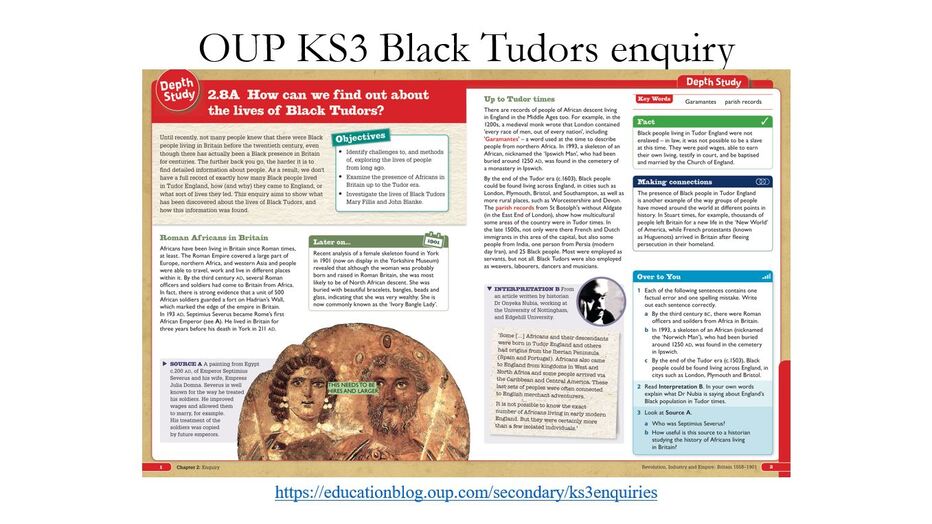 As in any curriculum change, there needs to be a long-term commitment and schools and teachers can play their part and we thank Miranda for sharing the following helpful suggestions to upskill and up-knowledge teaching of Black British History in the classroom:
With thanks to Miranda for her motivating and enlightening talk that made us all think about the endurance of Black British History and for sharing ways to teach and bring to life this significant part of history that can inform the present. By Jude Owens, PA to the Executive Team and Governance In this final issue for this academic year, ESW Associate & Strategic Leader of Teaching & Research Schools | Education South West, Roger Pope CBE considers in this continued post-pandemic aftermath, “Why is it that our leadership skills are being challenged to such lengths?”
"So, this is when we have to dig deep into our leadership reserves. It’s a time when we have to believe in ourselves, to let go of what we cannot change and focus on those things that we can influence in our own schools." Building on SWIFT's commitment to Diversity, Equality and Inclusion (DEI), SWIFT's Professional Community lead, Ruhaina Alford, Executive Headteacher of The Carey Federation gives us an end of term report. At this point of end of term completeness, you can read about SWIFT's Director, Chris Harris's reflections as he ends his tenure with us and an interview with Programme Manager, Fiona McNeile who continues the good work of our programme delivery. And have your say in the Annual Teaching School Hub School Leader Satisfaction Survey. Our sponsor, SchoolPro TLC provides guidance on taking subject access requests seriously and find out some of the latest from Educatering, Exeter Supply Partnership, Lyfta and Praestantia Technology. |
SWIFT News
|
SPONSORED BY
Join us, be a part of our SWIFT community |
© COPYRIGHT 2022 SOUTH WEST INSTITUTE FOR TEACHING SWIFT. ALL RIGHTS RESERVED | Website by brightblueC
VIEW OUR PRIVACY NOTICES | VIEW OUR COURSE T&CS
VIEW OUR PRIVACY NOTICES | VIEW OUR COURSE T&CS

















































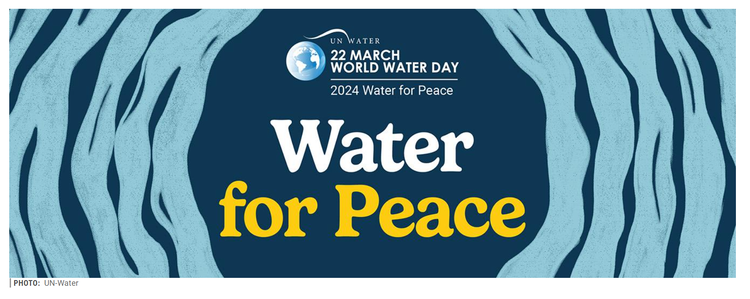
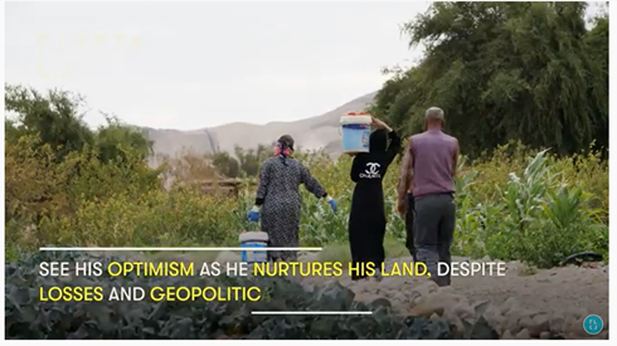
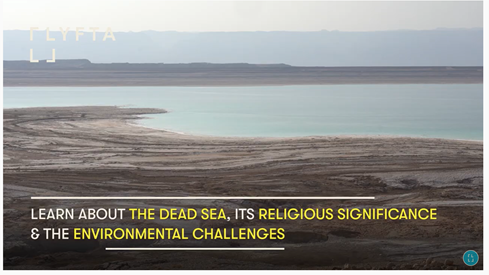
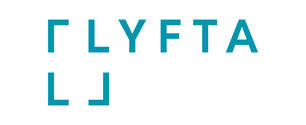

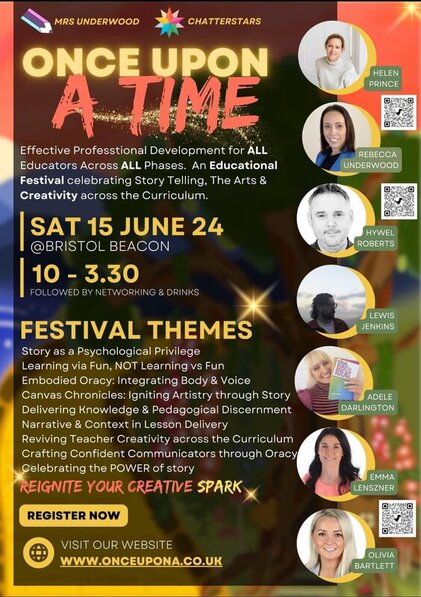
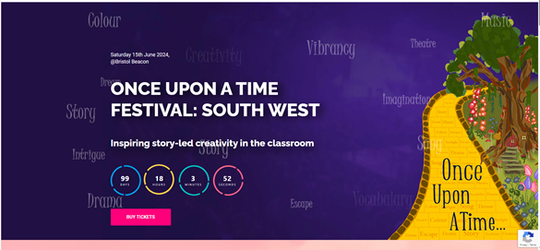
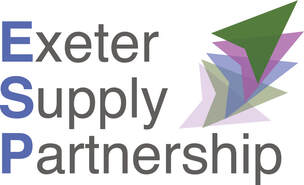

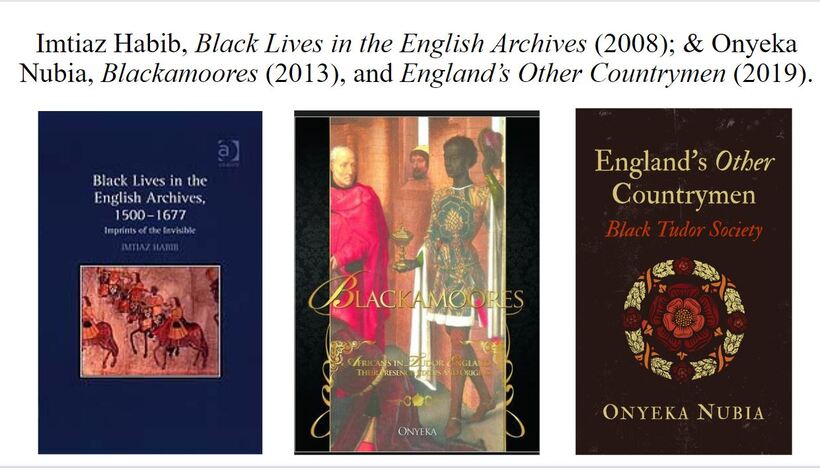
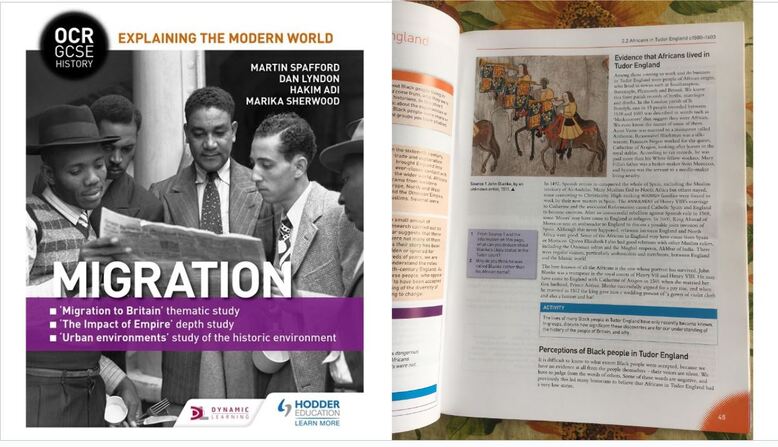
 RSS Feed
RSS Feed





